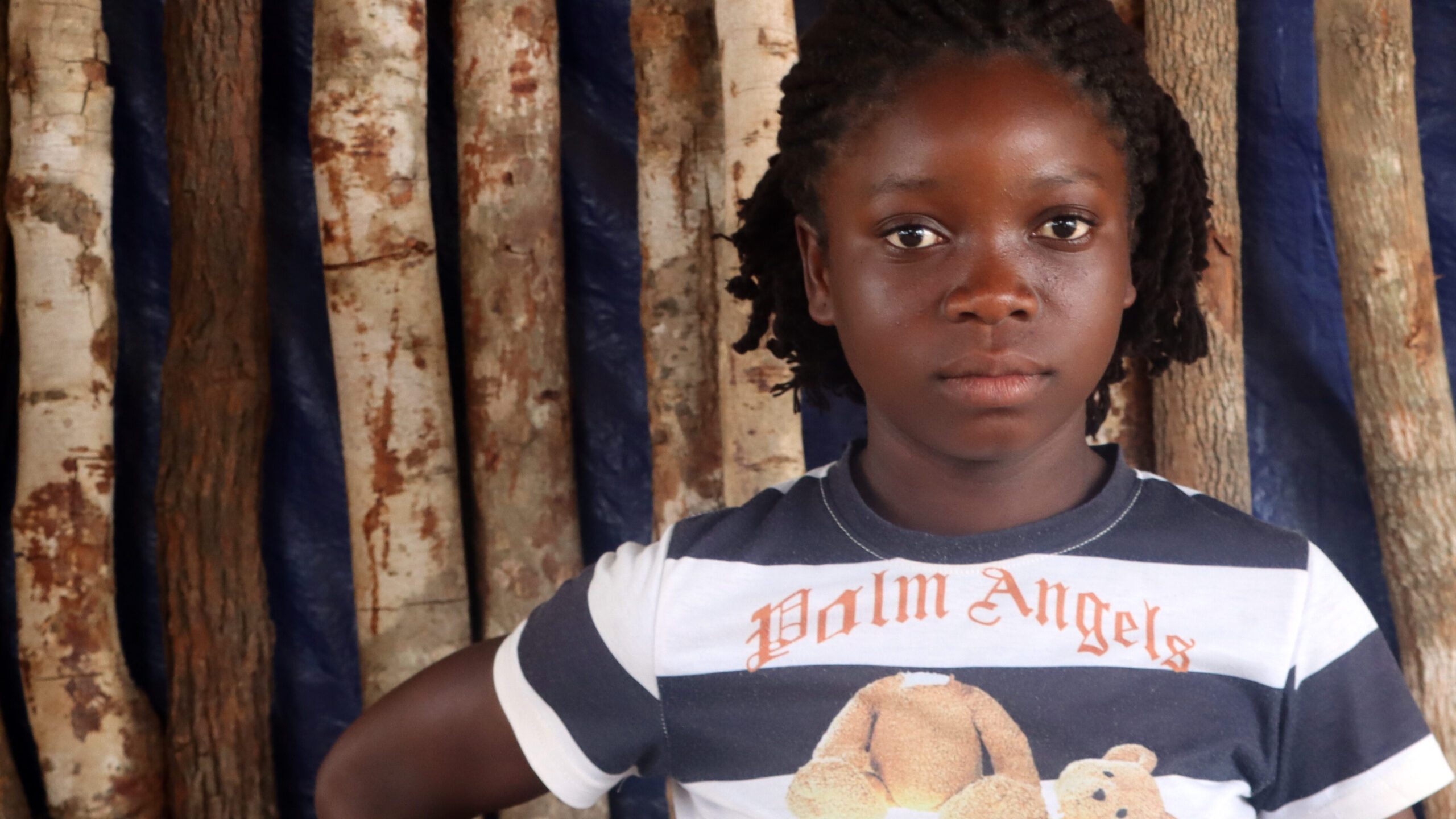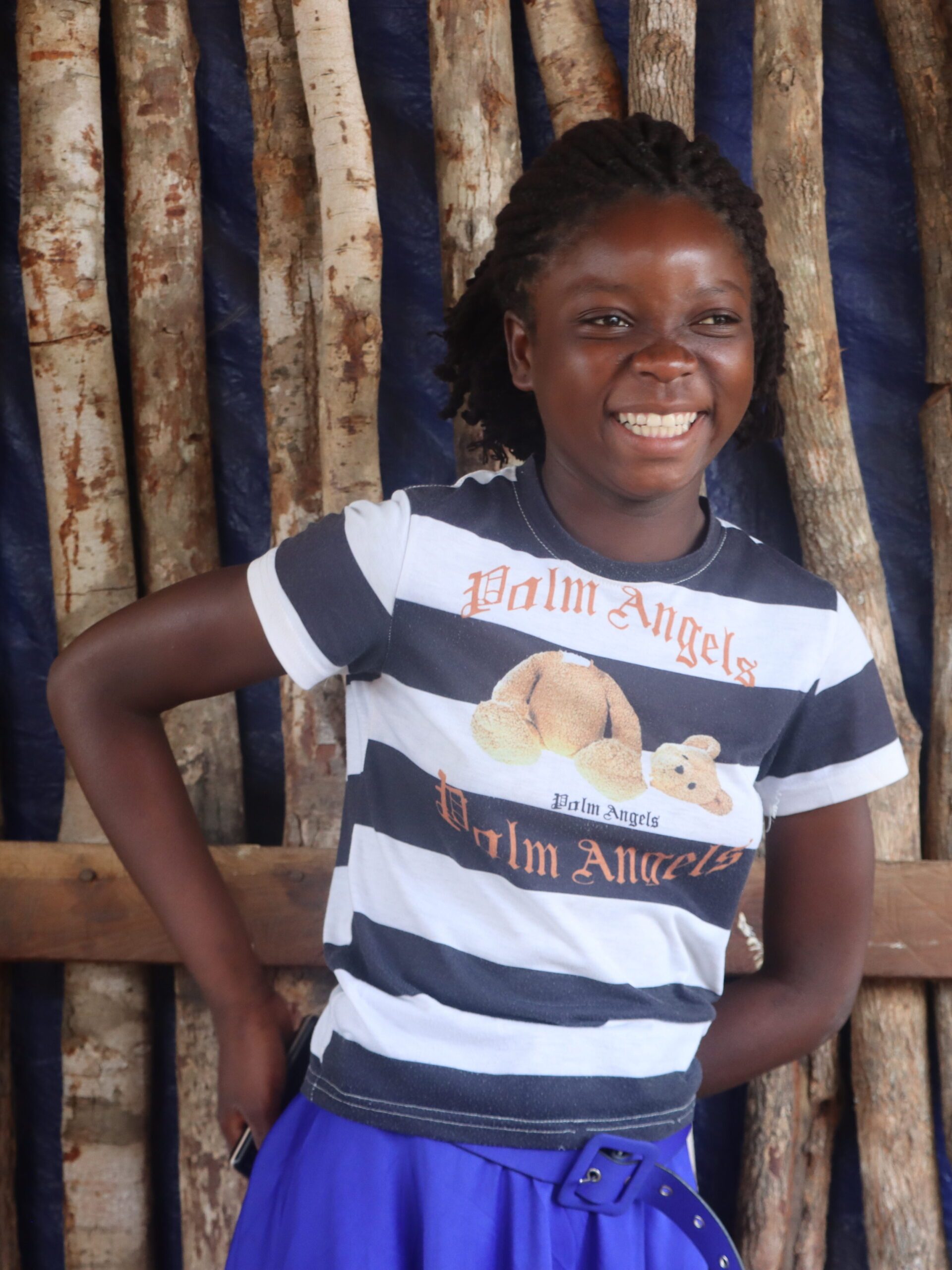Rosa: a girl forcibly displaced by the armed conflict
Forcibly displaced by the armed conflict, Rosa saw almost all of her rights compromised and, now in a resettlement center, her hopes began to blossom as she returns to school.

Forcibly displaced by the conflict in Cabo Delgado, Mozambique’s northernmost province, 14-year-old Rosa now lives in a resettlement centre with her mother, sister and brother. “I don’t remember the exact year we fled, but it was a long time ago that I left my community,” says Rosa.
“I know it was at the beginning of the armed conflict. I was much younger and everything happened very quickly, and I was terrified by the sound of the guns and the general panic in my community,” she adds.
Over the past 7 years, the conflict in Cabo Delgado has displaced over a million people since it began in 2017. Some have returned home, but more than half a million remain displaced.
Rosa still vividly remembers the terrifying ordeal of leaving her home. “We walked for several days with other people from my village. We spent the nights awake in the forest, only the youngest children could sleep.”
The family eventually made it to a safer part of the province, where they had to start all over again. Life in the resettlement centre was challenging at first, but Rosa says things have gradually improved, despite the increasing number of people arriving from other parts of the province fleeing armed attacks.
“I feel better here. Now that I am in a safe area, I can sleep,” says Rosa. “For a long time I couldn’t. I thought I would be woken up at night by the sound of gunfire and have to run back into the bush. I still think about going back to our village, but not now, because I’m afraid of being there again.”
Rosa’s mother has been able to cultivate a small plot of land where she grows maize, peanuts, beans, pumpkins and watermelons. This helps to feed the family and any surplus is sold to pay for other necessities. Rosa has made friends with other girls at the centre and they sometimes play with girls from the local community, despite a rocky start.
“When we first arrived, our relationship was difficult because they looked at us with suspicion, they didn’t like us,” Rosa explains. “They said we would eat their food and bring diseases.”
Rosa’s return to education

Rosa attends one of the temporary learning spaces built by Plan International. “Classes are going well. I got a uniform, notebooks, pens, pencils and even a bag to put the books in. I couldn’t read before, but thanks to this support, my performance at school has improved a lot.”
Although new classrooms have been built, there are still many children who cannot be accommodated indoors and have to learn in the open. “A lot of children have classes outside, under the trees, sitting on benches or on the floor. But if it wasn’t for the help we’ve already received, I don’t know what would have become of us, because without support the teachers can’t help all the children.”
Displacement causes girls to drop-out of school
As in the rest of Cabo Delgado, poverty and displacement have forced many children to drop out of school. Whether it is to help their parents with income-generating tasks for the family, to get married, or even because of early pregnancy, thousands of girls in the province are out of school.
“I know girls here who dropped out of school because they got pregnant or got married,” says Rosa, who is in fifth grade. “I have talked to my friends about it and none of us have thought about dropping out. In the camp, we have talks from organisations like Plan International that encourage us to prioritise school and postpone marriage. Our parents also attend these talks.”
For Rosa, projects like those run by Plan International are vital because there are still so many challenges facing displaced families, and as the attacks continue, more people will be forced to move to safer areas.
“If the project stops, a lot of things will stop and a lot of people will suffer. It’s not just about the things we are getting; the classrooms, the improved latrines and bathrooms, the uniforms and school supplies. With the continuing attacks, many families have been separated, people have been hit by bullets, others have died and many children who have survived and managed to reach safer areas are not in a good psychological state. Many cannot even study. Thanks to this project, the children are getting help and are getting better.”
Plan International’s Response
“If the project stops, a lot of things will stop and a lot of people will suffer.”
Rosa
Plan International is working in Cabo Delgado to respond to the immediate needs of displaced people by delivering essential items such as hygiene kits, soap, jerry cans, water filters, buckets, sleeping mats, blankets and mosquito nets.
With funding from the European Union, we have also implemented education projects, including the construction of temporary classrooms and latrines, teacher training and the provision of educational materials. Child protection projects have included the creation of child-friendly spaces for younger children.
Categories: Education, Emergencies, Protection from violence


